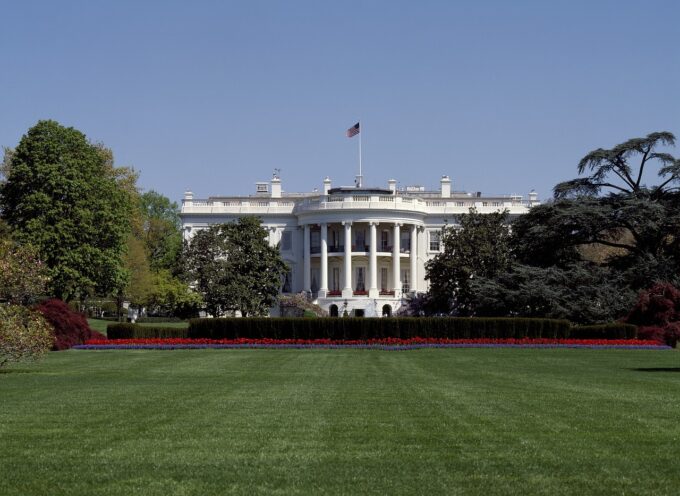Out of the Catholic and Orthodox traditions emerged newly-formed streams of Christianity. Those traditions both drew upon, and reacted against, the other traditions. In this installment, we will explore briefly some of the main distinctives of these traditions as they sought to formulate the proper approach to the political sphere. We will begin with the Lutheran tradition before going on to address the Reformed, Anabaptist, and American Black Church traditions.
The Lutheran Tradition
The Lutheran tradition places grace alongside of nature, dividing the created world into two kingdoms—a natural kingdom and a spiritual kingdom. God rules the natural kingdom through common grace, which is to say through universal principles and laws. He rules the spiritual kingdom through saving grace and special revelation. Each realm is significant but the Christian way of interacting in each realm differs. Thus, the Lutheran tradition is similar to the Catholic tradition in dividing the world into two realms, but different in its refusal to relate them hierarchically.
According to Lutherans, God’s creational design did not include a political sphere; government and politics are a result of the Fall. After the Fall, God carved out a realm for politics, authorizing the government to use force to restrain evil, bring a modicum of order and justice to society, and protect its citizens from external attack. Christians can participate in government and politics by helping the government execute its responsibilities. A Christian who does so should know that she is doing a good thing, but she should also beware not to spiritualize the natural realm by thinking that we can draw upon grace and revelation to transform the political realm.
The Reformed Tradition
The Reformed tradition argues that the world is not divided into two realms of grace and nature. Instead, God’s grace renews and restores nature, making the natural realm better than it was before the Fall. Before the Fall, God called the world into existence and ordered it by means of his word. His ordering word still holds for all of life, including not only explicitly spiritual activities such as corporate worship or personal devotions but also for the other spheres of culture, including politics. In any given sphere, including politics, a Christian should ask: What is God’s creational design for this sphere? How has sin corrupted and misdirected it? How can I draw upon every resource God has given me—including special revelation—to speak prophetically and bring a measure of healing and redirection to that sphere. Reformed Christians know that the political sphere will never be fully healed or transformed until Christ returns, but as a matter of witness and obedience, we must draw upon our Christianity to make things better to the extent that we can.
The Reformed Tradition emphasizes the severity of the Fall. In relation to individuals, God offers salvation through Christ so that we may gain right standing before God. As it relates to politics, God graciously provides the government to restrain evil, bring a modicum of justice and order, and defend citizens in times of war. Thus, Christians must respect governing authorities by being good citizens. Moreover, being a good citizen sometimes involves drawing explicitly upon our Christianity when engaging in politics and public life. Finally, the Reformed tradition emphasizes Christ’s return, when as rightful King, he will set the world to rights.
The Anabaptist Tradition
Not to be confused with modern Baptist denominations, the Anabaptist tradition pits grace against nature. Early Anabaptists were harassed, persecuted, and even executed because of their belief in the autonomy of the local church. In that respect, they experienced the worst that secular institutions such as the government have to offer. As the Anabaptist tradition developed, a core conviction arose concerning the Fall: the first couple’s sin corrupted not only the human heart but also the natural realm, and it corrupted the natural realm ontologically—in its very being. Sin destroyed the goodness of creation, and thus Christ will return one day to destroy it and start over again. Instead of making all things new, he will make all new things. Thus, a good Christian will speak prophetically against evils found in the political realm but will not try to transform that realm or use it to achieve godly ends.
Anabaptists emphasize Jesus’ life and teaching, especially as expressed in the Sermon on the Mount. From Jesus’ emphasis on peace and from his example as one who suffered on the cross, Anabaptists draw the conclusion that Christians must always practice nonviolence. It is not the Christian’s job to defend himself or his country through the use of force. Many Anabaptists go even further, ruling out not only military service but also government service in general. An Anabaptist’s service to his country lies primarily in his allegiance to his church as it embodies the teachings of Christ for the sake of the world.
The Black Church Tradition
The American Black Church tradition cuts across denominational lines and is not as closely tied to a specific view of the relationship of nature and grace. Rather, it is tied to the black experience in America. Given that white Christians for many years owned black Christians and sometimes abused or even killed them, black Christians embraced their churches as a haven in which they could experience the freedom to worship, to speak prophetically about the evils they experienced, and yearn corporately for the Lord’s return.
Similar to the Anabaptists, the Black Church tradition emphasizes Christ’s steadfastness in the face of suffering and persecution. They further emphasize Jesus’ loving care for the poor and marginalized. In relation to government and politics, the Black church is ambivalent. On the one hand, government-supported slavery and the Jim Crow laws made the black community very aware that government power can be used to oppress and abuse. On the other hand, the black community’s existence as a minority has made it aware of the role government can play to bring justice to the oppressed, to bring structural changes to institutions and systems that have been warped and corrupted by human sin.
Conclusion
As Christianity developed historically, newer streams of Christianity emerged, developing their own distinctive approaches to the question of Christianity and politics. They built upon, reacted to, and modified the approaches of the Catholic and Orthodox traditions. From each of these traditions, we can learn something important for developing a faithful and contemporary approach to Christianity and politics in our American context. The final installment, therefore, will provide some initial thoughts on contemporary faithfulness in our contemporary context.
Subscribe
Never miss a post! Have all new posts delivered straight to your inbox.







